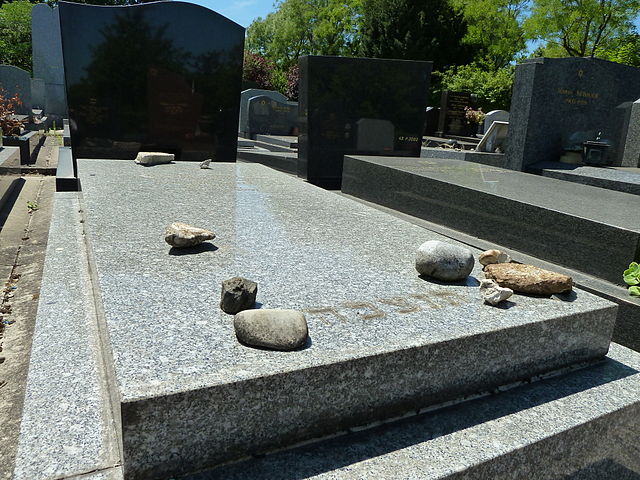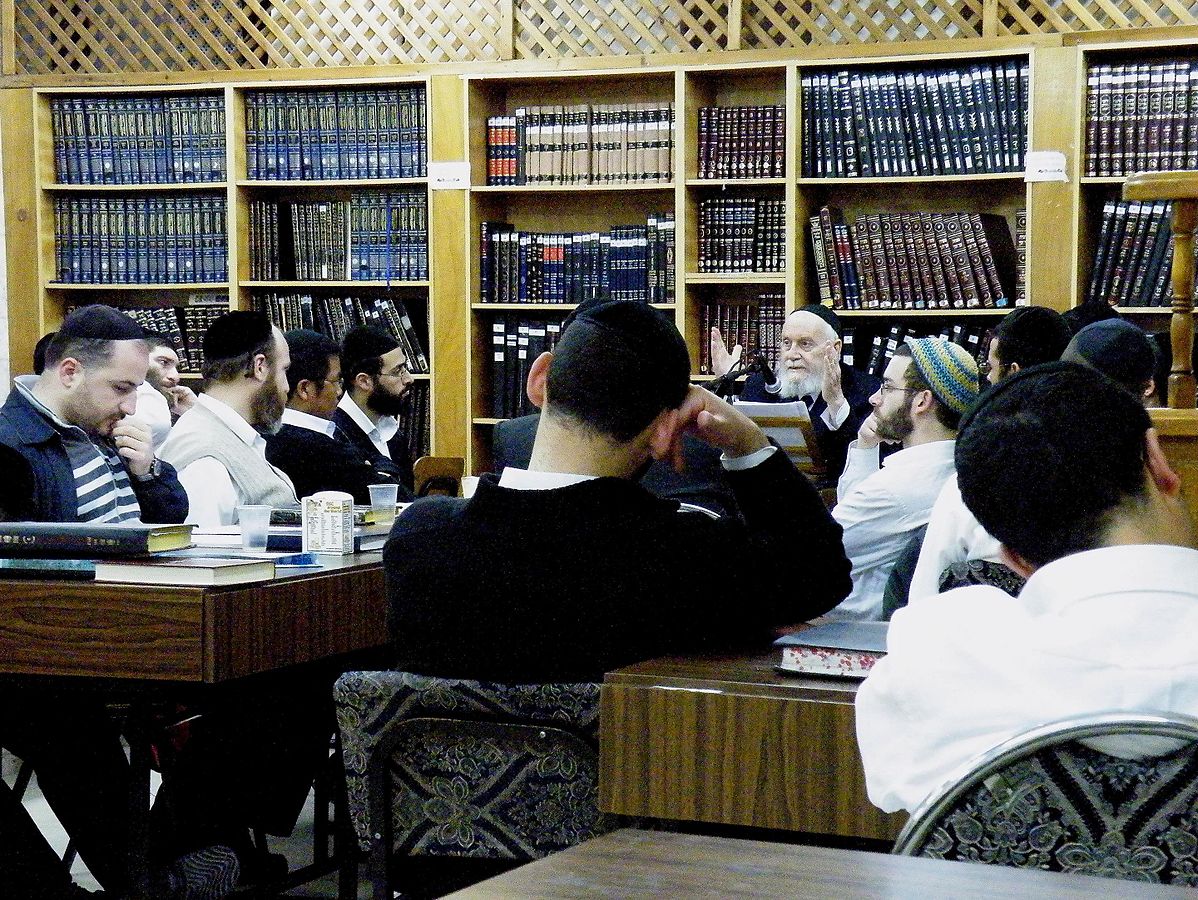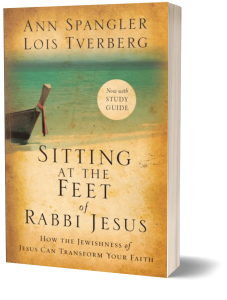Welcome to En-Gedi…
 Featured Article: (from Parables and Stories)
Featured Article: (from Parables and Stories)
Give Us Our Daily Bread
by Lois Tverberg
He will give the rain for your land in its season, that you may gather in your grain and your new wine and your oil, and you will eat and be satisfied. Deuteronomy 11:14-15, edited.
 The line from the Lord’s Prayer, “Give us this day our daily bread” is a line that most Americans can hardly relate to. We may guess that “bread” was representational of food in general, so the text is talking about the provision we need for life each day. But we are so amply supplied that we can’t imagine praying that prayer.
The line from the Lord’s Prayer, “Give us this day our daily bread” is a line that most Americans can hardly relate to. We may guess that “bread” was representational of food in general, so the text is talking about the provision we need for life each day. But we are so amply supplied that we can’t imagine praying that prayer.
Rev. Stephen Kaziimba, who came to our area from Uganda has been teaching us otherwise about how much of the world hears these words. After he had been in Michigan for a year, he was asked what he would remember longest from being here. His reply was, “All my life, I will never forget having this one year when I did not need to worry about food.”
I was dumbfounded by that statement, that a good friend could come from a place where such basic necessities were unmet. He pointed out that in America we have food but no appetite, but where he comes from, people have appetite but no food. In his country, “Give us our daily bread” is a heartfelt prayer, expressing the continual worry of most people.
Now, when I read the Scriptures, I see that his perspective is more close to that of the Bible than mine is. One of God’s promises that the Israelites would have heard as a great blessing was that they “will eat and be satisfied.” To have enough to be full was a blessing from the Lord, and to be fat was a sign of beauty and bounty. As one who is a little overweight, it shows me both that God has abundantly blessed me, and that I’m not doing enough to share the blessings with others in need.
Sometimes the best way to pray a prayer is to live the prayer. Now, whenever I hear the words “Give us our daily bread” it will remind me to to not overbuy food when I go shopping, to not order huge portions in restaurants, and to eat my leftovers before they go bad. And most of all, it will remind me to be thankful for the abundant food we have and to be mindful of the needs of others.
Photo by Stephen Walker on Unsplash
Thy Kingdom Come
by Lois Tverberg
Pray, then, in this way: “Our Father who is in heaven, hallowed be Your name. Your kingdom come, your will be done, on earth as it is in heaven…” Matthew 6:9-10
Even though Jesus often talks about the kingdom, many of us struggle to understand what Jesus meant by “thy kingdom come.” We read two different phrases in the gospels – “kingdom of heaven” and “kingdom of God.” In Matthew, “kingdom of heaven” is used, while in Mark and Luke, “kingdom of God” is used. This is because Jews show respect for God by not pronouncing his name. Matthew is preserving the culturally-correct quote “kingdom of heaven” while Mark and Luke are explaining to Gentile audiences that “heaven” is a reference to God.
The primary understanding of the kingdom of heaven was God’s reign over the lives of people who enthrone him as king. The rabbis knew that most of the world did not know God, but the scriptures said that one day, “The LORD will be king over all the earth; in that day the LORD will be the only one, and His name the only one” (Zechariah 14:9).
The question of Jesus’ time was when and how God would establish this kingdom. It was thought that when the Messiah came, the Kingdom of God would arrive all at once with great glory. But Jesus disagrees:
Once, having been asked by the Pharisees when the kingdom of God would come, Jesus replied, “The kingdom of God does not come with your careful observation, nor will people say, ‘Here it is,’ or ‘There it is,’ because the kingdom of God is within you.” Luke 17:20
Jesus meant that a person is brought into the kingdom of God when a person repents and decides to accept God as his King, and it is something that happens in a person’s heart, not a political movement or visible display of God’s power.
So what did Jesus mean by the phrase “your kingdom come”? He is talking about God’s reign over our lives, not about a future display of God’s power. He uses it in parallel with the next line in the text. The two phrases “your kingdom come” and “your will be done on earth” are synonymous. These phrases both mean, “May all nations of the earth enthrone you as king! May everyone on earth know you and do your will!”
Photo by Sandro Gonzalez on Unsplash
Our Father
by Lois Tverberg
“This, then, is how you should pray: `Our Father in heaven, hallowed be your name…” Matthew 6:9
Jesus begins to teach his disciples how to pray by addressing God as “Our Father.” He was not unique in this respect – other Jewish prayers of the day began with, “Our Father, Our King…” which is “Avinu, Malkenu….” This address encompasses both God’s love and his sovereignty, like Jesus’ prayer does, describing both God’s fatherly love, but also his holiness. The plural pronoun “our” is used out of respect for God, to not be too intimate.
The thing that is unique about Jesus is not how he told his disciples to address God, but how he addressed God himself, as “My Father.” No one else in all the Bible refers to God as “My Father.” There is an interesting reason for this. The Jews had a tradition about the Messiah that was related to the key Messianic promise that God gave to King David:
The LORD declares to you that the LORD himself will establish a house for you: When your days are over and you rest with your fathers, I will raise up your offspring to succeed you, who will come from your own body, and I will establish his kingdom. He is the one who will build a house for my Name, and I will establish the throne of his kingdom forever. I will be his father, and he will be my son. (2 Samuel 7:11-14)
From this prophecy, they understood that when the Messiah came, he would have a relationship with God so close that when he prayed, he would refer to God as “My Father.”
This gives us a fascinating insight into an early story of Jesus’ life. When Jesus was twelve and his parents found him in the temple, Jesus said, “Did you not know that I had to be in My Father’s house?” (Luke 2:49) This was the first time that Jesus made a messianic reference to himself, showing that he understood who he was since childhood.
Throughout Jesus’ ministry, he refers to God as “my father,” and every time he used those words, his listeners would have heard it as a bold claim to be the One who God had promised would come.
Even This is For the Good
by Lois Tverberg
“I will bless the LORD at all times; His praise shall continually be in my mouth. ” Psalms 34:1
 One of the ways the rabbis interpreted the phrase “love the Lord your God with all of your heart” was to point out that since we have both joy and sadness in our heart, we need to love God both when we are happy and when we are sad. We are to bless the Lord at all times, as the psalmist says we should do today. As Paul points out, we should “give thanks in all circumstances, for this is God’s will for you in Christ Jesus.” (1 Thessalonians 5:18).
One of the ways the rabbis interpreted the phrase “love the Lord your God with all of your heart” was to point out that since we have both joy and sadness in our heart, we need to love God both when we are happy and when we are sad. We are to bless the Lord at all times, as the psalmist says we should do today. As Paul points out, we should “give thanks in all circumstances, for this is God’s will for you in Christ Jesus.” (1 Thessalonians 5:18).
The rabbis had some wonderfully wise prayers in order to bless the Lord for both the highs and lows in life. When they went through a long, difficult time and finally had relief, or celebrated some happy event for which they waited, they said, “Blessed is He who has allowed us to live, and sustained us, and enabled us to reach this day!”
When a son returned home from war, or when a baby was born, or some other wonderful thing, they stopped to praise God for bringing them to that point in their lives. Even today this prayer is used, and is a favorite for many.
Even in times of grief, when someone died or they heard tragic news, they blessed God. They said “Blessed is he who is the true judge.” It was a proclamation that God is righteous and good even in the midst of terrible times, and it reminded them that he will in the end bring justice, even when it doesn’t seem to be present at the time.
They have an interesting, wise, but difficult saying that is often said on hearing tragic news. Gam zo le tovah – “Even this is for the good.” The first time I heard this saying was from a dear friend in Israel who had learned that his wife had breast cancer. If you’ve never lived through difficult times, it’s not appropriate to quote this line as an empty platitude to someone who is. But from the lips of my good friends who were anxious and in grief, it was a statement of great faith in God — that even in the worst times, we know that a loving God intends it for good.
Photo by Anton Levin on Unsplash
Blessing or Thanks?
by Lois Tverberg
“Bless the LORD, O my soul, and all that is within me, bless His holy name. Bless the LORD, O my soul, and forget none of His benefits!” Psalm 103:1-2
From Jesus’ day until the present, the Jewish people have had a tradition of saying numerous short prayers throughout the day called “blessings.” The idea is not to bless objects and people, in the sense of conferring holiness on them, but to bless God, with the understanding that we are focusing on him as the source of all blessing. The word for bless, barak, also means to kneel, suggesting that when we bless God, we mentally bow on our knees to worship him. Even Jesus prayed these prayers of blessing, following the customs of his day.
 In the most ordinary things they found ways of praising God. When the first flowers were seen on the trees in the spring, they said, “Blessed is he who did not omit anything from the world, and created within it good creations and good trees for people to enjoy!” When they heard thunder they also blessed God by saying, “Blessed is he whose strength and power fill the world!” This pervasive act of prayer kept God’s presence and love continually on their minds.
In the most ordinary things they found ways of praising God. When the first flowers were seen on the trees in the spring, they said, “Blessed is he who did not omit anything from the world, and created within it good creations and good trees for people to enjoy!” When they heard thunder they also blessed God by saying, “Blessed is he whose strength and power fill the world!” This pervasive act of prayer kept God’s presence and love continually on their minds.
A blessing is very close to a prayer of thanks, but it actually is not, and in some ways it is better. For instance, when we see a rainbow, we can praise and bless the Lord for his creativity, and the beauty he designs into creation. But to thank him for it implies that God gave it to us as a gift, or that our approval is required. Thankfulness requires God to have personally done something for us, but blessing is simply a prayer that glorifies him and reminds us of his supremacy in all things.
In my own experience, I have found that the practice of these prayers of blessing changes a person’s entire inner attitude. Continually praising God for his good gifts reminds us that the world is saturated with God’s presence and that we are under his constant care.
Photo by Aaron Burden on Unsplash
What Our Prayers Reveal
by Lois Tverberg
“If you then, though you are evil, know how to give good gifts to your children, how much more will your Father in heaven give the good gifts to those who ask him!” Matthew 7:11
Abraham Heschel once said, “The issue of prayer is not prayer, the issue of prayer is God.”* He means that our prayers reveal what we believe about God, and when we have the right understanding of God, our prayers will reflect it.
 Luke records that the saying about God as a loving Father who enjoys giving good gifts to his children comes after telling two parables about the importance of persistence in prayer (Luke 11:5-8). Jesus is saying that we should pray believing in God’s love for us.
Luke records that the saying about God as a loving Father who enjoys giving good gifts to his children comes after telling two parables about the importance of persistence in prayer (Luke 11:5-8). Jesus is saying that we should pray believing in God’s love for us.
I’ve started listening to my prayers to see what they say about what I believe about God. One prayer that I have heard and re-thought is when I have asked God to forgive me for worrying. Jesus says, “Do not worry.” But sometime we conflate that into meaning that worry is a sin that we need to repent from. Worry is a natural response to the difficulties of life, and the Lord knows our weakness.
I think Jesus’ words about not worrying are to reassure us of God’s care, not to lay another impossible expectation on us. To have peace in our hearts is a goal that we grow toward, and God does want us to grow in faith. But I don’t think, personally, that God is angry and counts it as a sin when we do worry, and so we shouldn’t ask for God’s forgiveness for worrying about our problems. I think that doing so makes us believe that God is a heartless perfectionist who is angry even with our weaknesses.
Often we approach God assuming that he is constantly angry, uninterested in our problems, distant, or unable to take care of us. Or worse yet, we give up on prayer all together. Here Jesus reminds us that our perception of God is all wrong. Of all people, Jesus can speak of the heart of God, and when we remember Jesus’ great love that brought him to the cross, we can always be reassured of the amazing love God has for us.
*Man’s Quest for God: Studies in Prayer and Symbolism (New York, Scribners, 1966) p. 87.
Photo by Peter Dlhy on Unsplash
Praying with Chutzpah
by Lois Tverberg
Then Abraham said, “Oh may the Lord not be angry, and I shall peak; suppose thirty are found there?” God said, “I will not do it if I find thirty there.” And Abraham said, “Now behold, I have ventured to speak to the Lord; suppose twenty are found there?” And He said, “I will not destroy it on account of the twenty.” Then he said, “Oh may the Lord not be angry, and I shall speak only this once; suppose ten are found there?…” Genesis 18:30-32
The verses above are from the conversation between Abraham and God about whether God would destroy the city of Sodom. Abraham argued tenaciously with God over the city, bargaining with God until the Lord agreed that even if only ten righteous people are found in Sodom, he would spare it.
We read this story with some surprise that a human would dare debate with God. Christians generally do not think it is appropriate to be so bold with God, saying as Abraham said, “Far be it from you to do such a thing – to kill the righteous with the wicked, treating the righteous and the wicked alike. Far be it from you! Will not the Judge of all the earth do right?” (Genesis 18:25).
The rabbis of Jesus’ day had an interesting answer for this brashness of Abraham toward God. Their interpretation was that it was as if Abraham is a child who is especially close to his father, trusting him so completely that he can say anything to him. His repeated petitions are like a little boy who keeps pulling on his father’s shirt tails, pleading with his dad, begging him over and over for a treat.
Jesus likes that kind of persistence himself. He is impressed by the Gentile woman who argues with him until he heals her daughter (Mark 7:26). He also tells a parable of a widow who keeps pounding on the door of judge until he hears her case (Lk 18:1-7). If an unrighteous judge will grant her request because she is persistent, how much more will a good and loving God answer her prayers! This is to teach us that we should always pray and never give up. Doing so shows that we believe in God’s power and His abundant love for us.
Photo by Sabine van Straaten on Unsplash
Learning About Prayer From Jesus
by Lois Tverberg
It was at this time that He went off to the mountain to pray, and He spent the whole night in prayer to God. Luke 6:12
 Jesus was a man of prayer. He stayed up all night in prayer, arose early to pray, and taught his disciples to pray. How did people pray in Jesus’ time, and how did he probably pray? Understanding the traditions of Jewish prayer adds depth and meaning to Jesus’ teachings on the subject.
Jesus was a man of prayer. He stayed up all night in prayer, arose early to pray, and taught his disciples to pray. How did people pray in Jesus’ time, and how did he probably pray? Understanding the traditions of Jewish prayer adds depth and meaning to Jesus’ teachings on the subject.
For instance, the prayer that Jesus probably prayed before he broke the bread at the Last Supper was probably something like, “Blessed is he who brings forth bread from the earth.” If the very next thing Jesus says is “This is my body, broken for you,” could he be hinting that just as God brings bread from the ground, he will bring Jesus, the Bread of Life out of the ground? It is an interesting thing to ponder. Our understanding of that passage is enriched by knowing the prayers of Jesus’ day.
Jesus also teaches many parables on the importance of prayer – about the persistent widow, and about the prayers of the Pharisee and the tax collector. We can learn much about the mind of Christ on prayer by grasping his teachings as they would have been understood in his time.
We can be especially enriched by understanding the prayer that Jesus taught us. Although we know it by heart, many struggle with some of the phrases like, “thy kingdom come” and “keep us from evil” that may seem foreign to us. Understanding his prayer in the context of the other prayers of his time will help us pray as Jesus intended for us to pray.
Of course, we need to be not just hearers of the word but doers as well. These articles will only be worthwhile if they inspire you to a new level of prayer, and a more intimate walk with your Heavenly Father.
Photo: Conniemod / CC BY-SA
Sharing Our Grief
by Mary and Holly Okkema
“A good name is better than fine perfume, and the day of death better than the day of birth.” Ecclesiastes 7:1
 Why is the day of death better than the day of birth? As sad as the death of a pre-born or young child may be, the death of one who has lived a longer life is of greater sadness. The longer one lives the better we know their character. This quote from Mendele Mokher Seforim says, “Among the Jews, a birthday is no holiday, but the anniversary of a death, that a Jew remembers.” (1)
Why is the day of death better than the day of birth? As sad as the death of a pre-born or young child may be, the death of one who has lived a longer life is of greater sadness. The longer one lives the better we know their character. This quote from Mendele Mokher Seforim says, “Among the Jews, a birthday is no holiday, but the anniversary of a death, that a Jew remembers.” (1)
What can we learn from this? In the Jewish tradition, there are four points of mourning (Avelut). The first point of mourning is Anilut, which is the burial. After the burial, the first meal eaten is called Seudat Havra’ah or meal of recovery. The second period of mourning is Shiva, which lasts for the seven days following the burial (Gen 50:10). The mourning does not stop after seven days; a third stage of mourning called Shloshim continues for 30 days (Deut.21:13), though most daily activities resume. Finally, each year the anniversary of the death is observed, called Yahrzeit. The local community remembers this anniversary at the conclusion of each Shabbat service. The surviving family is also encouraged to remember their deceased during the pilgrim festivals every year. (2)
Compare this with our current tradition. In a church funeral loving words are spoken of the deceased and the gospel is preached; that is, they proclaim that Jesus is risen, and insist that those who died in Him shall be risen too. From there, for about two weeks, the church shows how much they care with casseroles and consolation calls. After those two weeks, the community goes back to normal life. How can they forget, while the mourner is still in a great state of grief? Can it be that Christians do not know how to lament? (2)
We have strong examples of lamenting in the Psalms. According to one set of statistics, of the 150 Psalms, 43 of them are personal laments and 14 for communal lament. (3) In reading the laments of the psalmists, we see the writers expressing their grief and anger to God honestly, and we can be encouraged to do the same.
Although we are lamenting we are still called to praise, and this is reflected in Jewish practices. In every religious service in Judaism, the Mourner’s Kaddish is read. Kaddish is a curious collection of four verses which does not speak of mourning, but is a prayer about God, describing Him as magnified, sanctified, and worthy to be praised. Individuals are forbidden to pray Kaddish alone; they are commanded to pray with people, in the community of God’s faithful. (4) This tradition teaches that even as we mourn together, we are to praise together. Furthermore, as the community mourns, we are reminded that God is present, bearing our sorrows with us.
Looking to the New Testament, we read in Romans 12 and 13 general guidelines Paul set for becoming a united community. Within those guidelines, he wrote, “Rejoice with those who rejoice; mourn with those who mourn” (Romans 12:15). This is a concept from the Gemara (Part II of the Talmud, 3rd to 5th century C.E.), which says, “A person should share in the distress of the community” (Ta’anit 11a). (5) Messianic Jews from Paul’s day knew that they were to continuously mourn together as a community, and Paul was communicating that to the trans-cultural community, and thus to us today.
Therefore, learning from the Jewish traditions of Avelut and everyday worship practices, let us, in our current culture, reach out to those who are grieving not just at the time of the death, but throughout the first year and each additional year. As the mourner’s grief plateaus, subsides, and turns to memories, let us continually join in remembering those who have gone before us.
(1) Telushkin, Joseph. Jewish Wisdom. New York: W. Morrow, 1994.
(2) Winner, Lauren. Mudhouse Sabbath. Brewster, MA: Paraclete Press, 2003,
p. 27-36.
(3) Catalao, Rosann. “Praying at the Edge.” The Institute for Christian and Jewish
Studies. (www.icjs.org/what/edge.html)
(4) Bokser, Ben Zion. The Prayer Book. New York: Behrman House Publishers, 1983,
p. 202-3.
(5) Stern, David. Jewish New Testament Commentary. Clarksville, MD: Jewish New
Testament Publications, 1996.
Please also see the related article: Praying the Psalms, by Mary Okkema
Photo: Utilisateur:Djampa
Get Yourself a Friend
“For where two or three have gathered together in My name, I am there in their midst.” Matthew 18:20
In Western Christian culture today, a common approach to studying the Bible is to have a quiet time where we isolate ourselves in solitary study. In Jesus’ community-oriented culture, however, they had a very different approach. From Jesus’ time until today, students in Jewish religious schools have always studied in pairs – discussing, arguing and grappling with the text together. When one doesn’t understand, the other explains, and together they think of possible interpretations and other Bible texts that help in understanding.
 They said that if you want to truly study the scriptures you should “Get yourself a teacher (rabbi) and get yourself a friend (haver).” (Pirke Avot 1:3). The word haver (hah-VAIR) is loosely translated “friend”, but more specifically refers to a partner in studying God’s word. Anyone who has been a part of a good Bible study group knows that the bonds between haverim are often deep and strong. By spending time discussing God’s word and praying for each other’s burdens, people quickly become very close. Their testimonies of how their lives are impacted by their studying reinforces the text, giving real-life examples to inspire others.
They said that if you want to truly study the scriptures you should “Get yourself a teacher (rabbi) and get yourself a friend (haver).” (Pirke Avot 1:3). The word haver (hah-VAIR) is loosely translated “friend”, but more specifically refers to a partner in studying God’s word. Anyone who has been a part of a good Bible study group knows that the bonds between haverim are often deep and strong. By spending time discussing God’s word and praying for each other’s burdens, people quickly become very close. Their testimonies of how their lives are impacted by their studying reinforces the text, giving real-life examples to inspire others.
Sometimes we feel we need to be alone to hear God’s voice, not realizing that God’s Spirit often speaks best through other people. God desires that we live in community and love him together — not turn inward, ignore others, and seek him alone. The rabbis of Jesus’ time had a fascinating way of describing this. They said, “When two sit together and exchange words of Torah, then the Divine Presence dwells with them.” (Pirke Avot 2:3) It seems that Jesus wanted to reinforce this to his own followers, telling them that for eternity, his Spirit would be with them in their assembling as a body too. He said, “Where two or three have gathered together in My name, I am there in their midst.” (Matt 18:20)
~~~~~
 To explore this topic more, see Sitting at the Feet of Rabbi Jesus, Zondervan, 2009.
To explore this topic more, see Sitting at the Feet of Rabbi Jesus, Zondervan, 2009.
Photo: Roylindman
We’re pleased to be able to share this difficult-to-find classic by Brad Young. Check it out!
The Jewish Background to the Lord’s Prayer
by Brad H. Young
© 1984, Gospel Research Foundation Inc.
Softcover, 46 pages, $8.99
- Explore the Jewish roots of the Lord’s Prayer
- Learn how the Dead Sea Scrolls, rabbinic literature, Jewish prayers, and worship breathe fresh meaning into the revered words of the Lord’s Prayer
- Understand Jesus’ powerful prayer better in the light of Jewish faith and practice
Dr. Brad H. Young (PhD Hebrew University, under David Flusser) is the founder and president of the Gospel Research Foundation in Tulsa, Oklahoma. He is emeritus professor of Biblical Literature in Judaic-Christian Studies in the Graduate School of Theology at Oral Roberts University. Young has taught advanced language and translation courses as well as the Jewish foundations of early Christianity to graduate students for over thirty years.
Check out what else is available from the En-Gedi Resource Center bookstore too…



